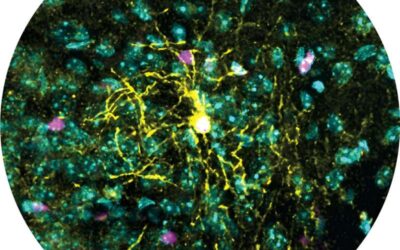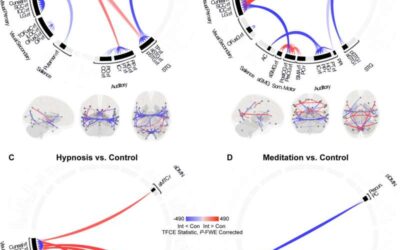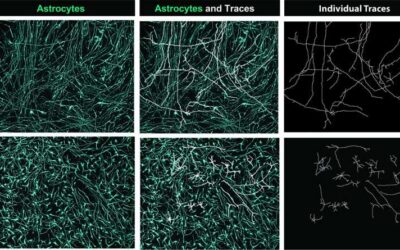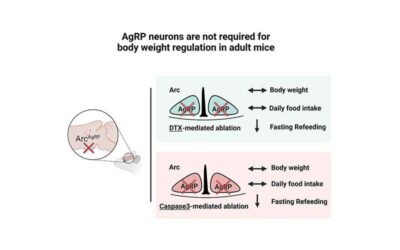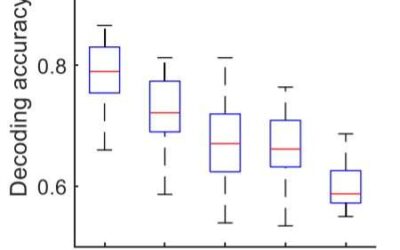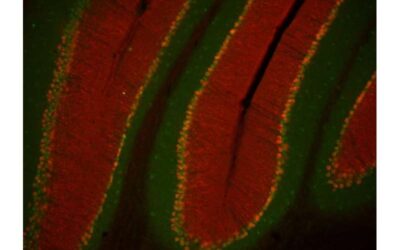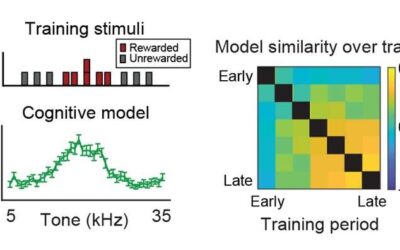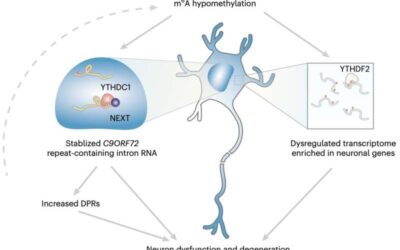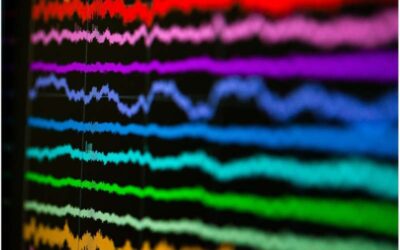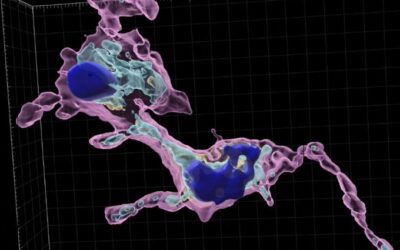High levels of stress are known to contribute to the development of many psychiatric and medical conditions, including depression, anxiety disorders, hypertension, and heart disease. Past case studies suggest that psychiatric disorders linked to stress exposure can...
Neuroscience
Exploring what happens in the brain under the influence of psychedelics, while meditating and during hypnosis
Changes in a person's "normal" mental state after taking drugs, while meditating, during hypnosis or due to specific medical conditions have been a topic of study for several years now. Some of these mental changes, which are known as altered states of consciousness,...
Study identifies ligand-receptor pairs driving the development of astrocytes
Astrocytes are a type of glial cell in the central nervous system that clear excess neurotransmitters, promote the formation of synapses (i.e., connections between neurons), and perform other functions. The development of astrocytes, like that of other glial cells, is...
AgRP neurons in the hypothalamus may not be essential for maintaining body weight
Obesity has been linked to numerous health conditions, including high blood pressure, high cholesterol, type 2 diabetes, heart disease and strokes. Identifying neural processes underpinning excessive eating and obesity could thus have notable implications for global...
Study determines object-related information is distributed across CA1 neurons in the hippocampus
The CA1 is a region of the hippocampus known to support the formation, consolidation and retrieval of memories. In recent years, neuroscientists have been trying to better understand how populations of neurons in the CA1 hippocampus encode places and objects.
Study links associative learning in the cerebellum to movement control in mice
The cerebellum, a region at the back of the brain under the cerebral cortex, has been found to support movement and muscle control, as well as memory, learning and other mental functions. Some neuroscience studies have hypothesized that the cerebellum refines the...
Study explores the emergence of predictive models in the hippocampus
Neuroscience studies have found that the brain spontaneously organizes events and life experiences into memories, which can be mentally retrieved and replayed at different points in time. These memories of past events are known to partly shape human perceptions and...
Study unveils new RNA dysregulation process that contributes to neurodegeneration
Recent neuroscience studies have consistently outlined the role of the C9ORF72 gene in the development of some neurodegenerative diseases. These studies found that mutations of this gene increase the risk of developing amyotrophic lateral sclerosis (ALS) and...
Study shows how the brain coordinates neuronal processing and communication during sleep
Past neuroscience studies have shown that while humans are sleeping, the brain remains highly active, consolidating memories and removing toxins accumulated during waking hours. While memory consolidation during sleep is a widely documented phenomenon, the processes...
Study shows that the translation of protein by microglia supports efficient phagocytosis
Recent studies have found that some cells of the brain, including neurons, astrocytes, and oligodendrocytes, can transport pieces of the genetic code (RNA) from the nucleus out to their distal processes which may be several microns away, and then locally translate...

